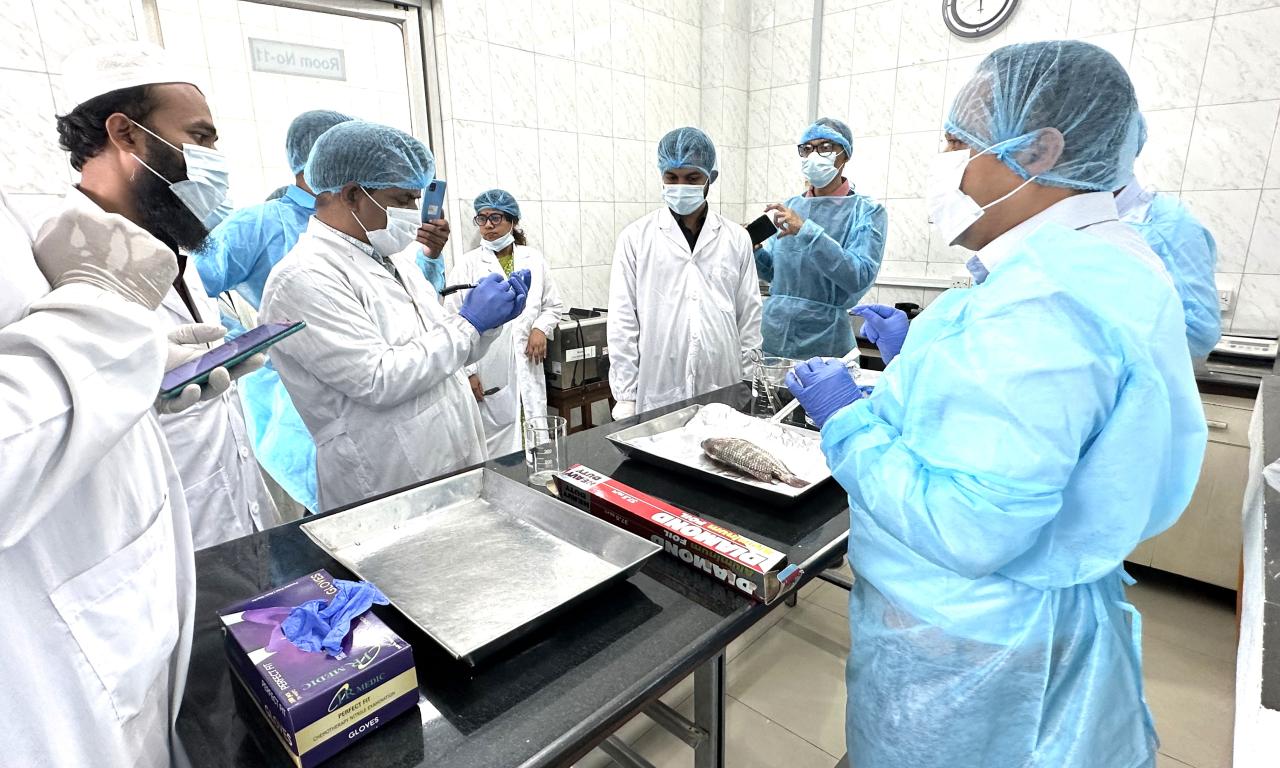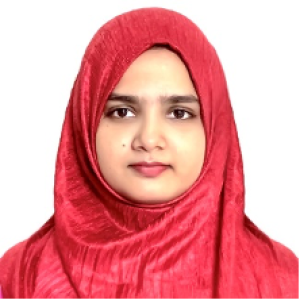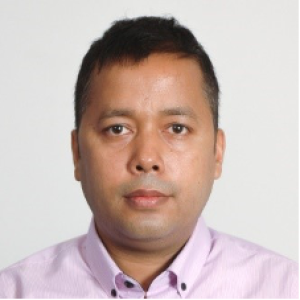
Each year, antimicrobial resistance (AMR) is responsible for an estimated 1.27 million deaths globally, with projections suggesting this could rise to 10 million annually by 2050 if no action is taken. The widespread misuse and overuse of antibiotics in human health, agriculture, and aquaculture have accelerated the emergence of multidrug-resistant bacteria, threatening the effectiveness of modern medicine. In aquaculture, inappropriate antimicrobial use (AMU) can make it a major hotspot for AMR, and a major threat to public health and to the sustainability of aquatic food production systems that millions rely on for nutrition and livelihoods.
To help address this challenge, WorldFish has joined the Antimicrobial Resistance and One Health-South Asia (AMROH-SA) Regional Grant consortium to support efforts to reduce AMU and AMR in aquaculture in four South Asian countries, Bangladesh, Nepal, Pakistan, and Sri Lanka. This regional initiative is funded by the UK Department of Health and Social Care’s (DHSC) Fleming Fund through its Regional Grants programme, using UK aid, and is led by Massey University, New Zealand.
As part of the consortium, WorldFish is developing aquaculture-specific AMU/AMR surveillance protocols, delivering laboratory training, strengthening a One Health approach to the interpretation and use of surveillance results, and engaging aquaculture practitioners to promote responsible use of antimicrobials.
Designing Surveillance Systems for AMU and AMR in Aquaculture
As an AMROH-SA partner, WorldFish is providing technical support and working with regional partners to develop AMU and AMR surveillance protocols for aquaculture across South Asia. These efforts are informed by scoping studies and sectoral assessments to ensure surveillance systems are evidence-based, practical to implement, and aligned with country-specific needs and priorities.
In Bangladesh, we are collaborating closely with the Department of Fisheries (DoF), supporting the competent authority in developing the country’s aquaculture AMU surveillance systems. In Sri Lanka, we’re providing assistance to the national government in formulating an AMU/AMR surveillance strategy for the aquaculture sector. And in Nepal we’re providing guidance for the development of AMU surveillance protocols. Meanwhile, in Pakistan, we’re providing aquaculture surveillance teams with technical support for developing AMR surveillance protocols and data interpretation.
One Health Engagement of Stakeholders Across All Sectors
WorldFish has supported the aquaculture sector through national and regional One Health workshops that brought together advisors and AMR focal points from the competent authorities in human, animal and aquatic health and environment management sector – alongside researchers, and private sector actors. These multisectoral exchanges and peer review of surveillance results have improved understanding of AMU/AMR, enabling more informed data-driven decision-making.
Promoting Responsible Use of Antimicrobials in Aquaculture
As part of the AMROH-SA project, WorldFish is working closely with fish farmer communities in Bangladesh to promote antimicrobial stewardship. This includes promoting the adoption of improved biosecurity and good husbandry practices, early problem detection in fish farms and reducing reliance on antimicrobials through education.
WorldFish continues to strengthen AMU/AMR surveillance and promote antimicrobial stewardship in the aquaculture sector, both nationally and regionally, through the AMROH-SA project. These initiatives are crucial for achieving One Health goals and building resilient food systems at regional and global scales.


